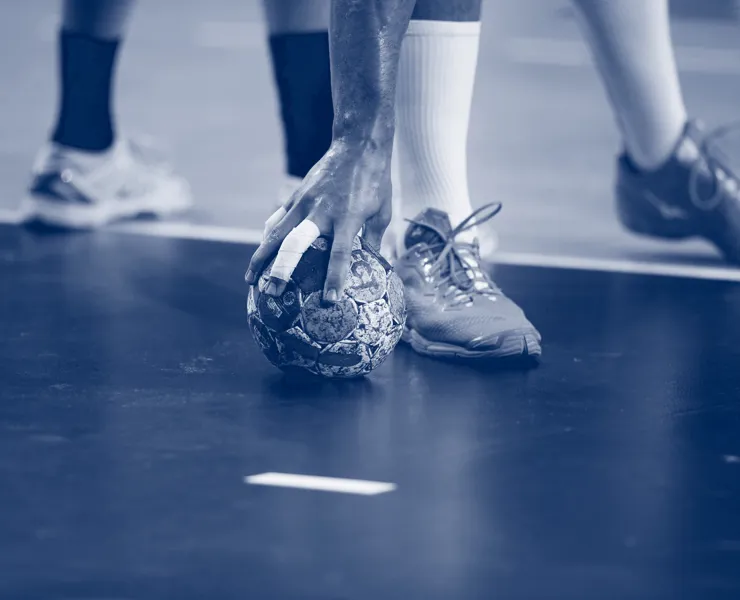

A game for the ages
A game for the ages
There was no shortage of classics at EHF EURO 2016 in Poland, as we were treated to memorable matches of all shapes and sizes throughout the three-week championship.
However, the first semi-final encounter between Germany and Norway stands out and has stood the test of time with its lead changes, crazy momentum shifts and a deciding goal coming in the dying seconds of the first extra-time period.
The EHF EURO 2016 can be re-lived on the EHF EURO Facebook page and YouTube channel this week, with the aforementioned clash being streamed on Tuesday 21 April at 18:00 CET.
Pre-match analysis
Norway had never finished higher than sixth in the EHF EURO before 2016 and eyed their first medal before the game against Germany. Norwegian superstar Sander Sagosen was just 20 years old and lacking experience at this level, but Norway had the momentum going their way, with wins against Croatia (34:31), Poland (30:28) and France (29:24).
Led by tactical mastermind Dagur Sigurdsson, Germany had a young side, but hungry to get back on the top and emulate the title won 12 years earlier. After a loss in their first game against Spain, Germany built a five-game winning run towards the semi-final against Norway, who also had lost only once before the clash.
Breaking point
Germany may have started the game better, but no team opened a significant lead in the second half.
Norway were up by two with seven minutes to go, but Germany answered with a 3:1 run, as Rune Dahmke sent the game to extra-time with a superbly placed shot with 19 seconds remaining.
The two teams continued to trade goals, but Norway never recovered from Dahmke’s goal and finally collapsed in the dying seconds of the first extra-time period.
Player of the match – Tobias Reichmann (Germany)
Such games can be influenced by the slightest of margins and Tobias Reichmann did just that. The German right wing, who was also selected in the tournament’s All-star team, scored a game-high ten goals from as many shots, including seven penalties.
Reichmann was also the second-hightest scorer in the competition with 46 goals, two fewer than Valero Rivera.
Unsung hero – Kai Häfner (Germany)
Häfner might have played only 17 minutes, but scored three of Germany’s seven goals in extra-time, including the winner with five seconds left. It may be Häfner’s finest performance in the Germany shirt to date.
Best quote
“We are a Team, not just a team, a Team,” Andreas Wolff, Germany
The German goalkeeper was an integrant part of Germany’s success in the EHF EURO 2016, saving 36 per cent of the shots faced during the tournament and was chosen in the All-star team. However, after such an entertaining and emotionally draining game, Wolff deferred the plaudits and praised the team spirit which helped lift Germany to the gold medal.
Andreas #Wolff tells us why @DHB_Teams is doing so well: "we are a Team, not just a team" well said #ehfeuro2016 pic.twitter.com/gHokOpJMvR
— EHF European Cup (@ehf_ec) January 29, 2016
Play of the day
There were 67 goals scored between the two sides, the largest total for an EHF EURO semi-final until 2018, but the play of the day is still Kai Häfner’s winning goal. With only five seconds to go on the clock, the German right back broke through Norway’s defence and scored to hand Germany the win and propel them to their third final.
Consequences
With a young team, brimming full of joy, Germany looked set to compete at the highest level for many more years to come, after winning the EHF EURO 2016 final against Spain, 24:17. Despite winning a bronze medal at the Olympics later that year, Germany have yet to push on from there as they failed to progress to the final weekend in the next two EHF EURO tournaments and missed out on a medal at a home World Championship in 2019.
On the other hand, after losing the bronze medal game against Croatia, 31:24, Norway went on to reach two world finals and finally earned their first EHF EURO medal in 2020, after losing only one game, the semi-final against Croatia.
With young guns like Sagosen, Goran Johannessen, Torbjorn Bergerud or Magnus Rød, Norway’s future looks bright.
Fun fact
This was the first EHF EURO semi-final that went into extra time. This has now become a sort of tradition, with the semi-finals in 2018, featuring Sweden and Denmark, and 2020 between Norway and Croatia also going beyond 60 minutes to decide a winner.





